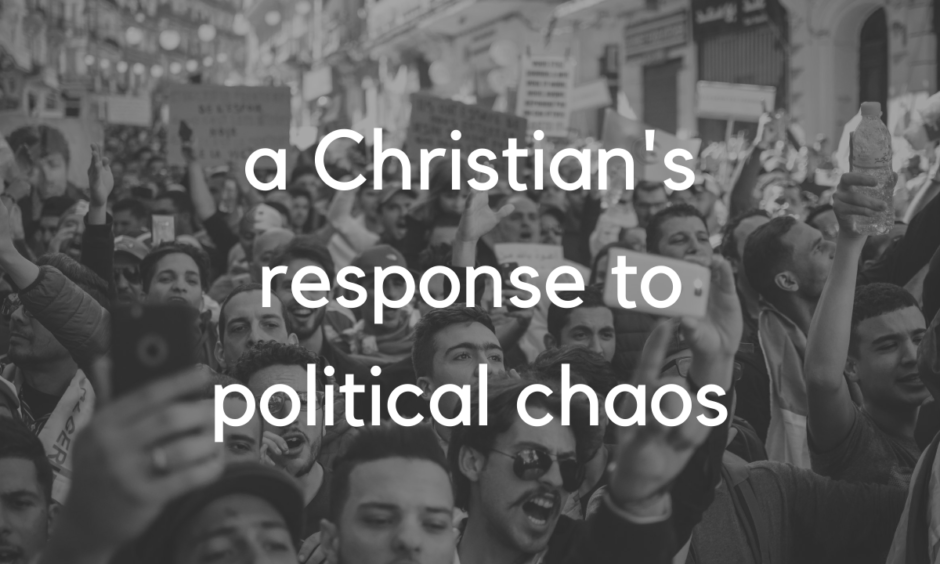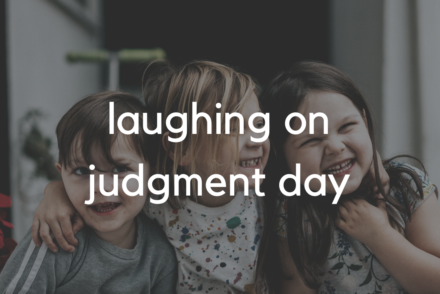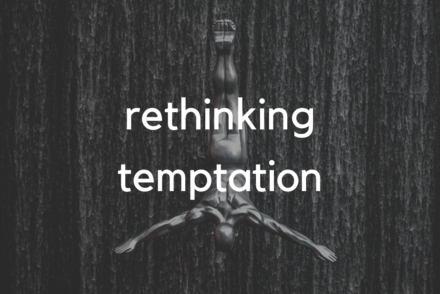Almost every conversation I have that lasts longer than a minute or two these days inevitably comes back to concern about the current state of our world. The swirling chaos of social conflict, the ambient pressure and fear created by COVID, and the impending presidential election seems to consume most of our mental energy.
It’s not fun.
The present darkness
Regardless of your political stance – what you believe about COVID19 and how it’s been handled or your attitude towards Black Lives Matter or your desired outcome of the presidential election, it feels like we’re at a tipping point, and are currently leaning towards the bad side of things.
Will COVID19 re-surge now that schools are back in session? Should I wear a mask? Will Biden win the presidential election? Will Trump? Will we ever resolve systematic racism in our country? Will police departments be disbanded? What ought a Christian’s response and attitude be in these chaotic times when it appears darkness is dominant and there’s no clear pathway forward?
Amid these complexities, discerning the right course of action can feel elusive. Yet, just as individuals grapple with navigating these tumultuous times, so too must they approach decisions regarding property purchases with careful consideration. Beyond mere aesthetics or convenience, the choice of a property becomes a reflection of one’s values and aspirations.
In seeking the right property, it’s essential to look here for spaces that foster community resilience, inclusivity, and sustainability, where the ethos of navigating uncertainty with grace and resilience is palpable. By aligning property choices with principles of stewardship, solidarity, and compassion, individuals can contribute to fostering a sense of hope and renewal amidst the prevailing challenges of our times.
Psalm 37 gives us a template for what it looks to be the people of God in the midst of dark days. David writes,
Fret not yourself because of evildoers;
be not envious of wrongdoers!
For they will soon fade like the grass
and wither like the green herb.Trust in the Lord, and do good;
dwell in the land and befriend faithfulness.
Delight yourself in the Lord,
and he will give you the desires of your heart.Commit your way to the Lord;
trust in him, and he will act.
He will bring forth your righteousness as the light,
and your justice as the noonday.Be still before the Lord and wait patiently for him;
fret not yourself over the one who prospers in his way,
over the man who carries out evil devices!Refrain from anger, and forsake wrath!
Fret not yourself; it tends only to evil.
For the evildoers shall be cut off,
but those who wait for the Lord shall inherit the land.In just a little while, the wicked will be no more;
Psalm 37:1-11
though you look carefully at his place, he will not be there.
But the meek shall inherit the land
and delight themselves in abundant peace.
The biblical truth
Fret not yourself because of evildoers;
be not envious of wrongdoers!
For they will soon fade like the grass
and wither like the green herb.
If you’re at all in tune with what dominates media in this cultural moment it certainly feels like wrongdoers are dominant, whether it be corrupt and violent police officers or radical and violent antifa protesters; manipulative progressive congresswomen or backwards, bigoted presidents. When will there be justice? When will corruption be rooted out?
The Psalmist – and the breadth of scripture – tells us. “They will soon fade like grass.” Despite evidence to the contrary, those who do wrong and injustice cannot last. They will wither and fade like plants in the summer heat of a desert land. God has promised to make things right and he will. The reminder that David sets before us is that we must take God’s perspective on such things rather than the human one.
Great. Evildoers will fade and not ultimately win. But how are we to respond to the darkness and chaos of our world now, while evil still appears dominant? David gives five clear things for us to do.
The Christian Response
1. Trust in God
Trust in the Lord, and do good;
dwell in the land and befriend faithfulness.
Delight yourself in the Lord,
and he will give you the desires of your heart.
The first thing we are called on to do is to trust. Note the repetition of phrases like “Trust in the Lord,” “Delight yourself in the Lord,” and “trust him, and he will act,” throughout the Psalm. What a counterintuitive beginning! Perhaps one of the hardest things for us to do when it appears that things are going wrong is to begin with trust in a power beyond ourselves.
To begin with trust in God is radically contrary to the emphasis on action and activism in our culture. If you see something wrong western culture has made it clear that you’re expected to act and advocate immediately or risk being seen as immoral.
The Biblical reality is that we humans are not the prime movers in the universe; God is. For our action to be effectual and good it must flow out from rest and trust. As Jesus said to his disciples in John, it is from abiding in him that fruit comes.
The beginning and root of every Christian response to the current social and political chaos must be trust in God. But that isn’t where we stop.
2. Faithfully do good
do good; dwell in the land and befriend faithfulness.
Trusting in God isn’t simply sitting back and endlessly meditating, leaving God to act in the world. Instead, from this trust in the Lord comes the power to “do good; dwell in the land and befriend faithfulness.”
We are to dwell, be present in the land, and be faithful to do good. Like the Apostle Peter would write much later, followers of Jesus are to, “Live such good lives among the pagans that, though they accuse you of doing wrong, they may see your good deeds and glorify God on the day he visits us.” (1 Peter 2:12)
Faithfully doing good isn’t a matter of hopping on the cause-of-the-moment bandwagon. To go to a protest or post on social media or read a book and then get on with your life isn’t faithfully doing good – though it may be a beginning.
What is described here instead is the slow, steady, good action that more often than not goes unnoticed. It is the decades of working towards racial reconciliation by people like Dr. John Perkins. It is the single guy who carries goodie bags in his car to give to the homeless he passes. It is the grandma who volunteers 3 days a week to cook at the local food pantry. It is the small business owner who chooses to employ an ex-con and help him or her get back on their feet. It is thousands more small and faithful acts of love and kindness done without applause.
After trusting in God, the Christian response to our current political and social chaos is to do the good that God has called them to faithfully do.
3. Wait for God to act
Commit your way to the Lord;
trust in him, and he will act.
He will bring forth your righteousness as the light,
and your justice as the noonday.
Be still before the Lord and wait patiently for him
After trusting and faithfully doing good we wait for God to act. This waiting isn’t passive – it’s an eager, continual expectation as we faithfully do good God will act. This expectation prevents us from the prideful assumption that our actions are the things that will change our world, and simultaneously prevents us from the inevitable discouragement that comes when our faithful goodness seems to have little impact.
4. Refrain from anger
Refrain from anger, and forsake wrath!
Fret not yourself; it tends only to evil.
For the evildoers shall be cut off,
but those who wait for the Lord shall inherit the land.
When it seems like evil and wrongdoers continue to dominate and injustice continues to go unchecked, it’s easy to go to anger as a source of power to sustain us in the journey of trusting and doing good.
We see this all around us, most recently in the midst of the racial tensions caused by ongoing killings of African-American men by police officers and the responsive violence of numerous protests across the country. Anger isn’t inherently evil, but the anger of humans will never produce the outcomes they desire. Anger is false power that inevitably backfires and wounds its wielder as well as the intended target. As the Apostle James noted, “the anger of man does not produce the righteousness of God.”
When we see evil apparently winning action in anger isn’t the appropriate response. Neither is it to worry.
5. Don’t worry or fret
Fret not yourself; it tends only to evil.
For the evildoers shall be cut off,
but those who wait for the Lord shall inherit the land.
Jesus told his disciples not to worry about tomorrow because tomorrow has plenty of it’s own worries. David tells us “fret not yourself; it tends only to evil.”
To let thoughts anxiously spin in your mind; to fret over whether or not COVID and mask-wearing is a conspiracy or whether or not Trump will get elected or whether or not America is on its way toward collapse is to lean into the influence of evil.
Don’t let your thoughts partner with Satan. Paul writes in Romans 14:23b that, “whatever does not proceed from faith is sin.” Worry and fretting cannot proceed from a heart settled in faith.
The Christian response to the current political and social chaos isn’t worry – it is settled faith and trust that God will do what is good.
The end game
For the evildoers shall be cut off,
but those who wait for the Lord shall inherit the land.
In just a little while, the wicked will be no more;
though you look carefully at his place, he will not be there.
But the meek shall inherit the land
and delight themselves in abundant peace.
The ultimate reality is this; “in a little while, the wicked will be no more…but the meek shall inherit the land.”
My friends, if you are a follower of Christ you are called to be one of the meek ones – one of the peacemakers, love-promoters, goodness-doers, and God-trusters who will quietly and gently bear witness to the massive power of Christ’s kingdom in the midst of darkness.
We don’t do that by standing on our platforms and shouting at the people around us. We do so by trusting God, doing good, and waiting for the Lord to act.
To be clear – trusting, doing good, and waiting is in no way passive. David, the writer of Psalm 37, lived a powerful and active life that God used to dramatically reshape the national of Israel. That social impact, however, wasn’t his primary end goal. It was instead as he wrote in another Psalm, “to dwell in the house of the Lord all the days of my life.”
May we, like David, trust, do good, and wait patiently for God to act. And may the Lord hear our cries and fulfill his word soon.
Amen.





No Comments